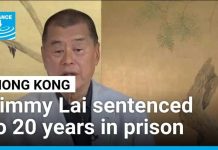
Federal courts are allegedly bypassing a critical legal safeguard when issuing preliminary injunctions against the Trump administration, potentially costing taxpayers hundreds of millions of dollars with no recourse for recovery.
Key Takeaways
- Federal judges are allegedly violating Rule 65(c) which requires plaintiffs to post a bond before receiving a preliminary injunction against the government.
- Two federal judges ordered the Trump administration to reinstate 25,000 probationary employees at a potential cost of $100-200 million per month without requiring a bond.
- The White House has issued guidance to federal agencies to push for enforcement of Rule 65(c) in federal courts.
- Legal experts warn these judicial actions could lead to significant taxpayer expenses with no mechanism for recovery if the government ultimately prevails.
- Critics, including Florida Governor Ron DeSantis and Elon Musk, have called for accountability regarding judges who bypass these procedural requirements.
Procedural Rule Violations Costing Taxpayers
Legal experts have raised significant concerns about federal judges failing to enforce Rule 65(c) of the Federal Rules of Civil Procedure when issuing injunctions against the Trump administration. This rule explicitly requires plaintiffs seeking preliminary injunctions to post a bond, which serves as financial security should the injunction later prove unwarranted. The apparent disregard for this procedural safeguard has received increased scrutiny as injunctions against Trump administration policies continue to mount, potentially placing enormous financial burdens on the government and taxpayers.
A particularly concerning example involves two federal judges who ordered the reinstatement of approximately 25,000 probationary government employees. This judicial action comes with a hefty price tag for taxpayers, as one expert explains these reinstated employees would require significant government expenditures in salaries and benefits. Without the protection of a bond requirement, taxpayers could be left with a substantial financial burden even if higher courts eventually rule that the administration had the authority to terminate these employees.
Under Federal Rule of Civil Procedure 65(c), judges can issue injunctions “ONLY IF” the suing party posts a bond to cover potential damages if they're wrong. But guess what? This rule is hardly used! 3/
— Dan Huff (@RealDanHuff) February 10, 2025
The Purpose and Importance of Rule 65(c)
Rule 65(c) was established as a critical filtering mechanism within the judicial system. By requiring plaintiffs to post a bond proportional to the potential costs of an injunction, the rule helps prevent frivolous litigation and ensures that parties seeking extraordinary remedies have financial skin in the game. The bond requirement essentially creates a risk assessment for plaintiffs – if their case lacks merit, they stand to lose their bond when the case is ultimately decided. This financial consideration helps maintain judicial efficiency by discouraging weak cases from advancing to the preliminary injunction stage.
The financial implications of these judicial decisions can be staggering. When courts order the government to take specific actions or reinstate employees without requiring plaintiffs to post appropriate bonds, taxpayers bear the financial risk. If the government ultimately prevails after months or years of litigation, there is no mechanism to recover the funds expended during the preliminary injunction period. This creates a one-sided risk scenario that places all financial burden on the public treasury rather than on the parties seeking the extraordinary remedy.
White House Response and Broader Implications
In response to these concerns, the White House has issued guidance directing federal agencies to actively advocate for the enforcement of Rule 65(c) in court proceedings. This move signals an administration-wide effort to ensure judges adhere to procedural rules when considering injunctions against executive actions. The guidance represents a strategic attempt to protect government resources and ensure that plaintiffs challenging administration policies face appropriate financial risks when seeking preliminary relief from the courts.
The issue extends beyond financial considerations to fundamental questions about the separation of powers and judicial oversight of executive authority. While the judiciary plays an essential role in checking executive power, critics argue that judges must themselves adhere to established procedural rules when exercising this authority. The apparent inconsistent application of Rule 65(c) raises concerns about judicial accountability and whether courts are applying procedural requirements evenhandedly across different administrations. This debate reflects broader tensions regarding the proper balance of power between the judicial and executive branches.
Sources:
Federal Judges Are Trampling Court Rules To Obstruct Trump’s Agenda, Expert Says
WH to Supreme Court: Rein in Judges Blocking Trump’s Agenda
Trump and allies ramp up attacks on judges, courts as agenda hits legal roadblocks



